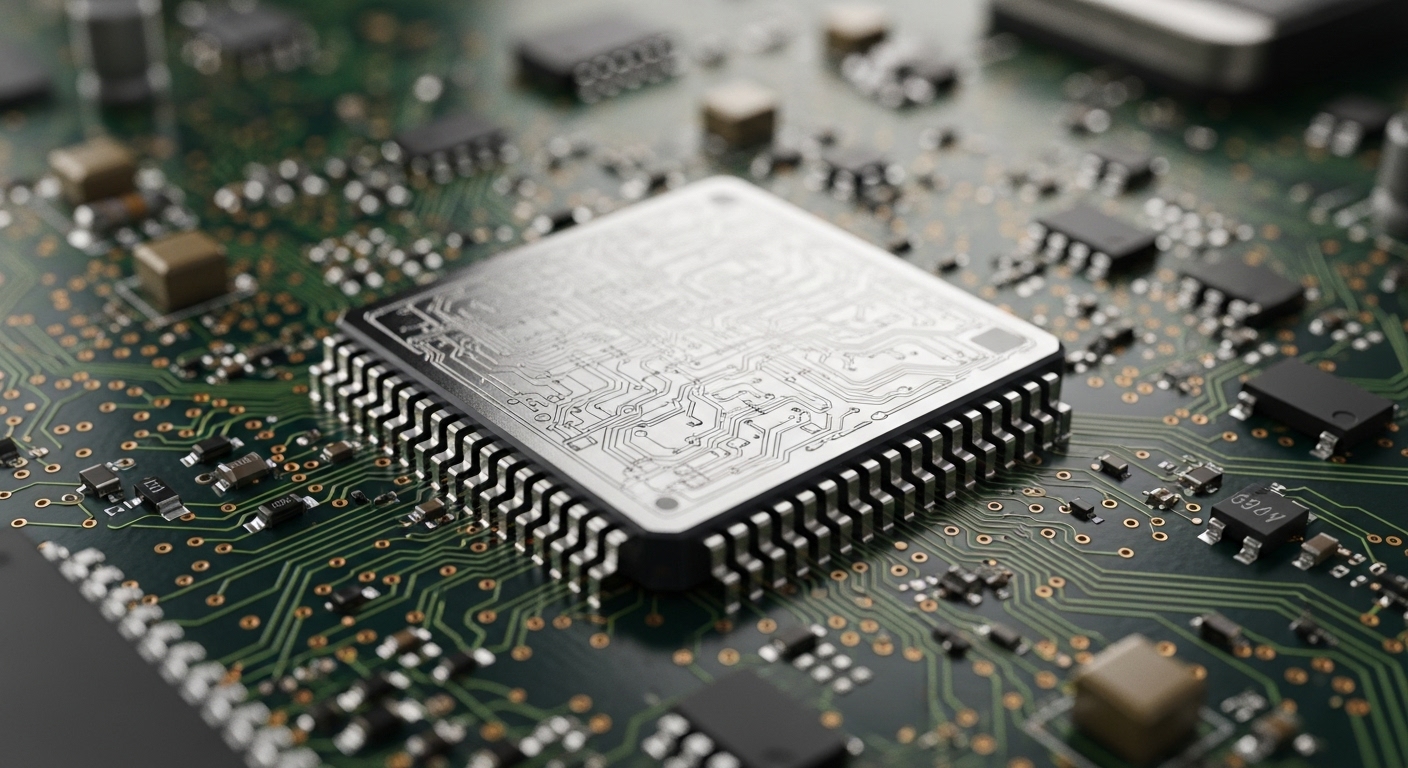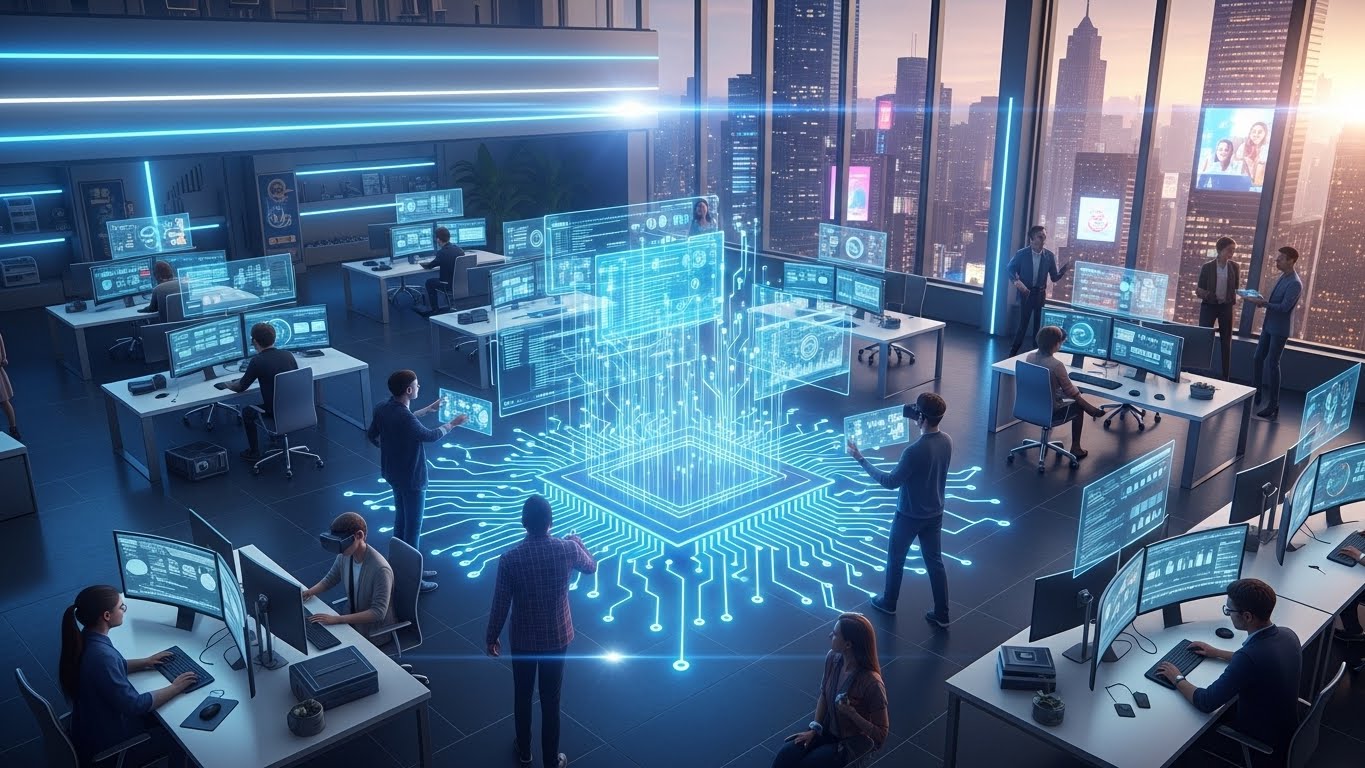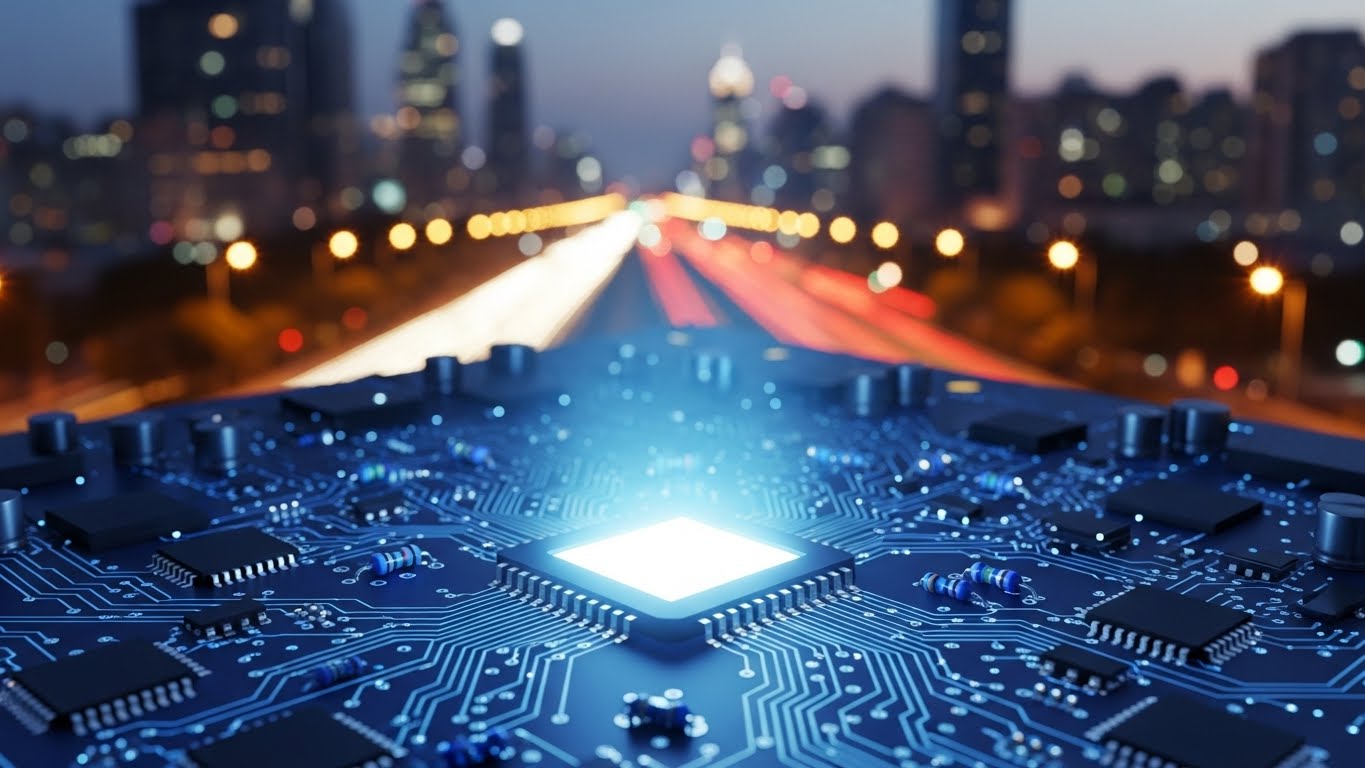Introduction: The Pace of Technological Change
The rapid evolution of technology over the past few decades has redefined the way we live, work, and interact with the world. From smartphones in our pockets to artificial intelligence (AI) systems reshaping industries, the pace of change is accelerating faster than ever before. As we step into a future increasingly dominated by innovation, it’s essential to understand the technologies driving this transformation. This post explores the key emerging technologies that are shaping our present and future, and the ways they are influencing our daily lives.
Artificial Intelligence: The Brain Behind Tomorrow’s Innovations
Artificial Intelligence (AI) has moved from a futuristic concept to a central part of everyday life. AI algorithms are already being used in everything from voice assistants like Siri and Alexa to more complex systems that power autonomous vehicles and medical diagnostics. The impact of AI on industries like healthcare, finance, and entertainment is immense. AI-driven chatbots provide customer support 24/7, machine learning models are improving disease detection, and AI is even helping film studios create more personalized content. The future of AI promises even greater possibilities, including more intuitive user interfaces, enhanced decision-making, and improved automation in nearly every sector.
The Internet of Things: A Connected World
The Internet of Things (IoT) refers to the growing network of physical devices connected to the internet, capable of exchanging data. This includes everything from smart thermostats and fridges to wearables like fitness trackers and even smart cities. IoT technology is revolutionizing how we interact with the environment around us, making it smarter and more efficient. In homes, IoT allows for automation—adjusting lights, temperature, or security systems with just a few taps on a smartphone. In industries, IoT is used to monitor equipment health, track logistics, and optimize resource management. As more devices become connected, the potential for smarter cities, homes, and workplaces will continue to grow.
5G Technology: Speeding Up the Digital Revolution
The rollout of 5G technology promises to significantly enhance connectivity, with faster speeds and lower latency than ever before. Unlike 4G, 5G offers the ability to connect a massive number of devices simultaneously, which is crucial for the growth of the IoT. This new technology will make mobile gaming smoother, enable faster downloads, and support more reliable video streaming. It’s also set to enhance industries like healthcare, where remote surgery and real-time diagnostics will be more feasible with 5G’s ultra-low latency. As the 5G network expands, the opportunities for innovation across sectors will increase exponentially.
Blockchain: A Trustworthy Digital Ledger
Blockchain, the technology behind cryptocurrencies like Bitcoin, is more than just a financial tool. At its core, blockchain is a decentralized ledger that records transactions across multiple computers, ensuring security and transparency. Beyond digital currencies, blockchain has the potential to revolutionize sectors like supply chain management, voting systems, and healthcare. For example, in supply chains, blockchain can provide a transparent and immutable record of product origins, helping companies verify the authenticity of their goods. The technology also promises to reduce fraud, increase efficiency, and build trust in industries that rely heavily on secure and transparent transactions.
Augmented and Virtual Reality: Merging the Physical and Digital Worlds
Augmented Reality (AR) and Virtual Reality (VR) are pushing the boundaries of how we interact with the digital world. While VR immerses users in a completely digital environment, AR overlays digital information onto the real world, enhancing the user’s perception of their surroundings. Both technologies are already making waves in gaming and entertainment, but their potential extends far beyond that. In education, VR can create immersive learning environments, while AR can help students interact with subjects in a more engaging way. In healthcare, VR is being used for surgical training, while AR is used for diagnostics and real-time patient data analysis. As the technology improves, AR and VR could redefine everything from online shopping to remote work.
Quantum Computing: The Next Frontier in Processing Power
Quantum computing is an emerging technology that promises to revolutionize the way we process information. Unlike traditional computers, which use binary bits to store data as 0s and 1s, quantum computers use qubits, which can represent and store data in multiple states simultaneously. This exponentially increases their computing power, enabling them to solve complex problems far beyond the capabilities of classical computers. Although quantum computing is still in its infancy, it holds the potential to accelerate breakthroughs in areas like drug discovery, climate modeling, and cryptography. As researchers continue to make progress, quantum computing could become a game-changer for industries that rely on heavy computational tasks.
Sustainable Tech: Innovations for a Greener Future
As the world faces the challenges of climate change, technology is stepping up to offer sustainable solutions. Renewable energy sources like solar and wind are becoming more efficient and affordable, thanks to innovations in technology. Electric vehicles (EVs) are becoming mainstream, reducing our reliance on fossil fuels and lowering carbon emissions. In agriculture, technology is being used to optimize water usage, reduce pesticide use, and increase crop yields. Similarly, smart buildings are becoming more energy-efficient, with automated systems controlling heating, cooling, and lighting. The continued development of sustainable technologies will be critical in mitigating the effects of climate change and building a more sustainable future.
The Future of Work: Automation and Remote Collaboration
The future of work is being shaped by automation and digital collaboration tools. Robotics, AI, and machine learning are automating routine tasks across industries, freeing up human workers for more complex and creative roles. While some fear that automation will lead to job displacement, it also opens up opportunities for new kinds of employment in fields like robotics maintenance, AI programming, and data analysis. Remote work has also been on the rise, accelerated by the COVID-19 pandemic. Cloud technologies, collaboration platforms like Zoom and Slack, and project management tools have made it possible for people to work from anywhere, giving rise to the idea of hybrid work models. This shift is expected to continue as technology makes remote work more seamless and efficient.
Conclusion: Embracing Change for a Better Tomorrow
Technology is undeniably shaping the future, and the changes we are witnessing today are just the beginning. From AI to 5G, blockchain to quantum computing, the innovations of today will continue to drive progress in the coming years. However, it’s important to embrace these changes thoughtfully and responsibly, ensuring that technological advancements benefit society as a whole. As we look to the future, we must remain mindful of the ethical implications of these technologies, while also harnessing their potential to improve lives, create jobs, and solve global challenges. The tech revolution is here, and it’s up to all of us to ensure that it leads to a brighter, more connected future.



